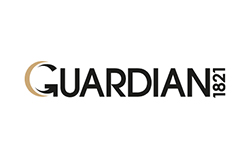
Helping advisers explain the cost of childhood cancer to clients
By Rachael Welsh, Head of Marketing, Guardian
The shape of working and family life has shifted over the years. The idea of only insuring the ‘breadwinner’ has long been replaced by a much more holistic assessment of needs, especially with many families reliant on two incomes. The protection sector has moved well with the times, but there is one area where we think the conversation still needs to adapt. This is around children’s critical illness (CI) cover and making sure families put in place the protection they need.
Children’s CI as a stand-alone part of the discussion
In the past, children’s CI was often included with adult cover. Nowadays, it’s a stand-alone cover. This fits with the broader trend encouraged by the regulator to move away from cross-subsidies. Arguably, that was happening when children’s cover was built into covers taken out by people who didn’t have or plan to have children.
We believe having adult and child CI covers as stand-alone options is a fairer approach. However, it requires a subtle change in the protection conversation, particularly with clients who are parents, or who are planning to start a family.
In the past, with built-in cover, advisers didn’t have to have a detailed discussion about the risk to children’s health, because children were automatically covered. Today, with separate covers, there’s a need to highlight the financial impact associated with the risk of a child becoming ill. Advisers often tell us that of all their client conversations about insuring risks, it’s the risk to children’s health and the underestimated cost to families that can be the most difficult. We wanted to equip advisers with some relevant material to help with those conversations.
Our research with Young Lives vs Cancer showing a double hit to finances
We were already aware of some significant research in the area, conducted by a brilliant charity called Young Lives v Cancer, more than five years ago. We approached the charity and suggested taking another look, sponsoring new research and hosting an event to increase awareness and assist with fund-raising.
The research produced some striking and worrying results in terms of the financial challenges for a family when a child gets cancer. In fact, it showed that families face a double hit.
First, the average cost of a child getting sick with cancer was nearly £700 a month encompassing meals, travel, potentially overnight stays and hospital parking. That extra spend is difficult for many families to find, and even more so in the context of dramatically rising costs.
Second, there’s pressure on family incomes. The majority of families suffer a loss of earnings as a result of parents reducing hours, or taking time off to accompany a child for treatment and simply to look after them. For almost a third of families this loss of income is £10,000 or more. For nearly a third of households surveyed at least one of the adults had to stop work entirely following their child’s diagnosis.
Equipping advisers to have meaningful conversations about children’s CI
We hope that some of these facts and figures can be incorporated into conversations or communicated as part of a broader messaging, with advisers deploying the soft skills they’re famous for. We also conducted some brief interviews at the fundraising event with some of our intermediary partners. (These are featured in a podcast that we highly recommend listening to if you have fifteen minutes free).
To briefly touch on some of the points raised: Emma Thomson, Head of Protection Developments at Sesame, mentioned the power of stories in discussing protection and children’s CI. This research and broader work with Young Lives v Cancer has furnished us with a host of such stories ranging from the details of how costs can impact, to how significant emotional support can be for families.
Mike Allison, Director of Protection at Paradigm Protect, made an important point about messaging or as he put it “communication, communication, communication”. He also noted that the conversation about children should be part of the fact-find, while Dan Hobbes, MD at New Leaf Distribution, talked of the need for education and training, especially now that children’s CI comes separately. He also mentioned Consumer Duty, which we think lends itself to having a thorough protection conversation.
Looking forward: getting families protected
With such interesting research and such a brilliant cause, we intend to keep working with Young Lives vs Cancer. At the same time, we’re determined to continue this discussion with advisers, to help highlight discussion points and hopefully help with some of those difficult conversations. We think it’s important that any clients who have or plan to have children are aware of this significant protection need – in terms of the challenges that having a sick child can present – as well as the options available to address it.
* The research involved an online survey with a total of 259 participants and follow-up interviews. The participants included parents or caregivers of children and young people under 27, as well as young people aged 18 to 26, who have undergone cancer treatment and care within the past two years.
Guardian Financial Services is an appointed representative of Scottish Friendly Assurance Society Limited. All products are provided by Scottish Friendly.





